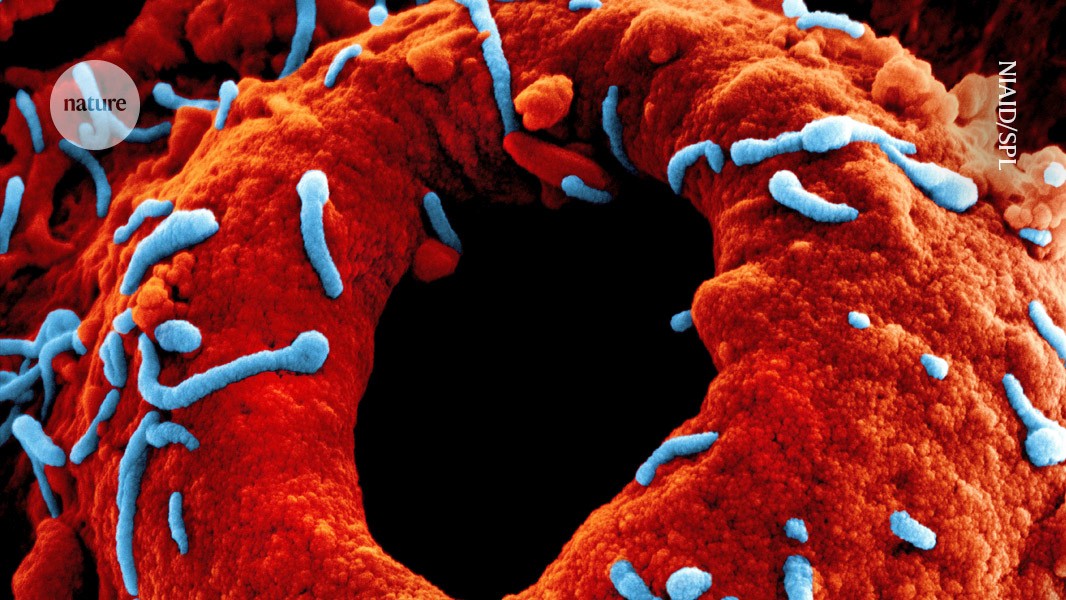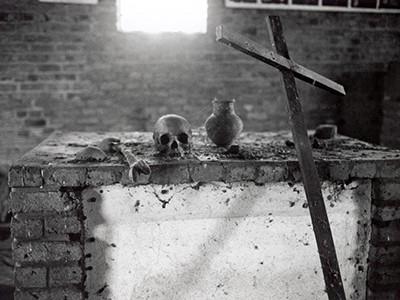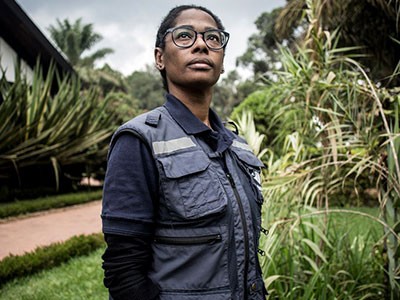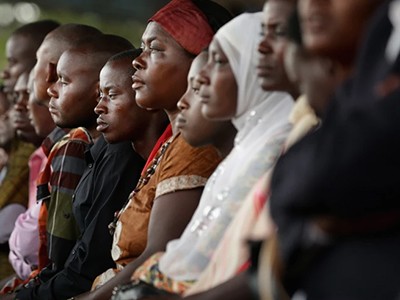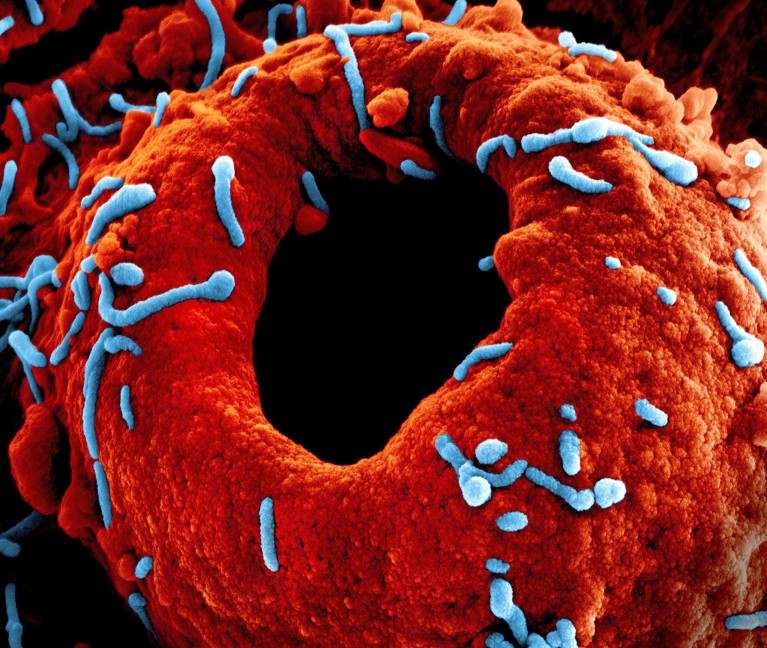
Marburg virus particles (blue) on the surface of an infected cultured cell (red).Credit: NIAID/Science Photo Library
Researchers are in a race against time to deploy vaccines and treatments against a deadly virus that has exploded in Rwanda.
As of 30 September, the central African country has recorded 27 cases and 9 deaths caused by Marburg virus, a highly deadly relative of Ebola virus that also causes haemorrhagic fever, with most cases occurring among health-care workers in the country’s capital Kigali.
After the genocide: what scientists are learning from Rwanda
There are no approved therapies or vaccines against Marburg virus. But if the current outbreak continues — most are small and quickly contained — health officials and researchers hope to gather valuable data on the safety and potential effectiveness of vaccines and treatments.
On 30 September, the World Health Organization (WHO) in Geneva, Switzerland, hosted a teleconference involving Rwandan scientists appointed by the government to run potential trials of vaccines and treatments and members of the Marburg virus vaccine consortium (MARVAC), a group of companies, non-profit organizations and researchers, according to a WHO spokesperson.
Ring vaccination
Broadbrush plans for trials were hashed out in the wake of a 2023 Marburg virus outbreak in Equatorial Guinea, which caused 12 deaths among 17 confirmed cases and another 23 fatal probable cases. But no experimental medicines were tested during the outbreak.
Ira Longini, a biostatistician at the University of Florida in Gainesville and MARVAC member, says that if the Rwanda outbreak continues, the plan is to trial at least one vaccine in a strategy known as ring vaccination. The approach — which showed the effectiveness of an Ebola vaccine in Guinea during the 2014–16 West African outbreak — involves immunizing contacts of an infected individual.
Meet the Ebola workers battling a virus in a war zone
A WHO ethics committee had previously approved plans for the vaccine trial, as well as one for treatments such as the antiviral drug remdesivir, which was tested against Ebola and COVID-19, and monocloncal antibody treatments that have shown promise in animals. The WHO spokesperson said the next urgent step is for the trials to be approved in Rwanda.
Several Marburg vaccines are in various stages of development. The furthest along is a candidate led by the Sabin Vaccine Institute in Washington DC, which uses a modified chimpanzee adenovirus to deliver instructions for cells to make a Marburg virus protein. A trial involving 40 healthy US participants found the vaccine safe and that it generated an immune response against the virus in most people1, and a larger trial in Uganda and Kenya is under way.
A spokesperson for Sabin says the group is working with Rwanda’s government, but did not say how many doses of its vaccine were currently available. In 2023, a WHO advisory committee named the Sabin vaccine as its top candidate for testing during a Marburg virus outbreak.
Rapid production
A similar vaccine, being developed at the University of Oxford, UK, was also named as a priority for testing during a Marburg outbreak. Teresa Lambe, a vaccinologist at Oxford leading the Marburg vaccine’s development, says that the vaccine has so far proven safe in the handful of participants who have received it in an ongoing UK trial.
Mark Feinberg, chief executive of the International Aids Vaccine Initiative in New York City, says there are currently no doses available of the Marburg vaccine his organization is developing — which is similar to an approved Ebola vaccine — but production is scheduled to start this week.
Rwanda 30 years on: understanding the horror of genocide
“The Rwandan health authorities are exceptionally capable, and I hope that they will be able to rapidly contain this outbreak,” Feinberg adds. “The risks of extension of the outbreak to adjacent countries is not insignificant and the consequences of this could be severe.”
The fact that clinical-trial plans are in place and other groundwork has been laid increases the odds that Marburg vaccines and treatments will be deployed in Rwanda, says Nancy Sullivan, a viral immunologist at Boston University in Massachusetts. But it’s likely that data on Marburg vaccines and treatments will need to come during multiple outbreaks.
“The idea now is that you just move forward and don’t worry that the outbreak will end,” Sullivan adds. “It’s just a piece of the overall trial.”


